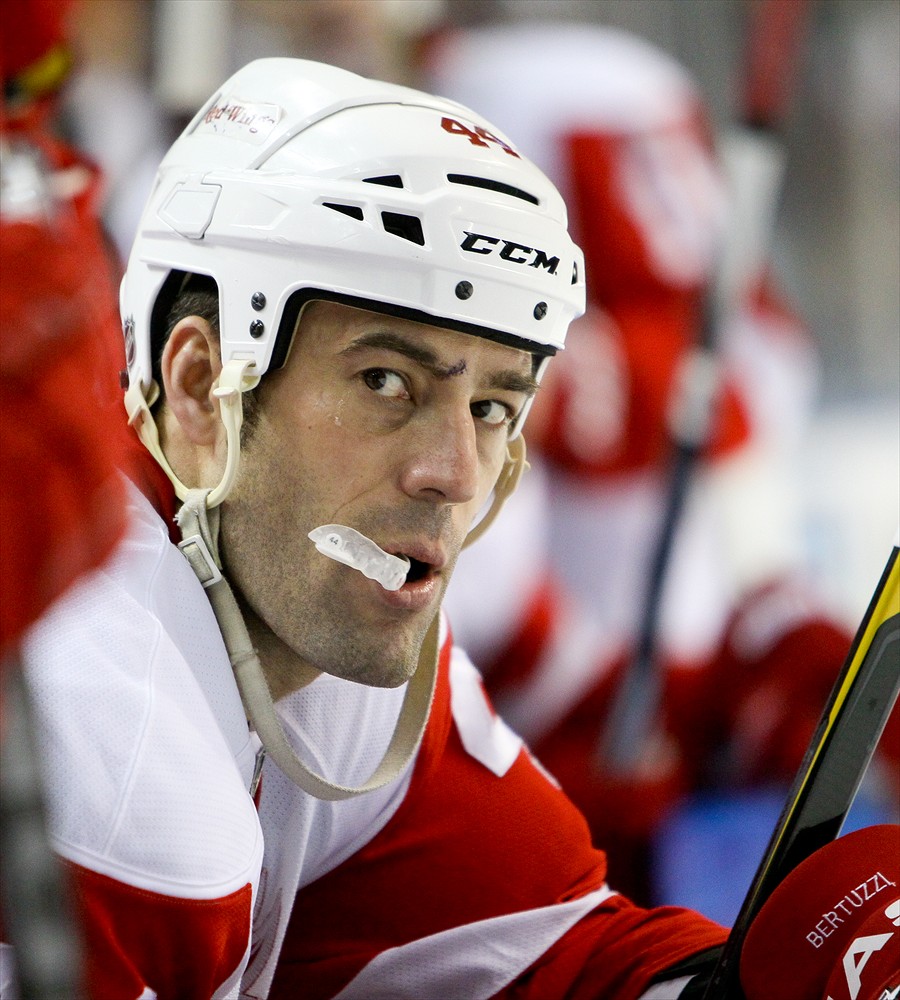
In activities where people can suffer, conversations about ethics will follow. After all, suffering is what ethics is really about.
Yes, I know, people die while walking their dogs, sleeping in their beds and during other “safe” activities. Dogs are usually loyal companions but can snap back to their wolfish ways in an instant, and the emergence of sinkholes into popular awareness makes sleeping slightly more dangerous, as well.
But hockey is different. Playing hockey requires participants to assume frequent violence. So please, let’s avoid burdening the chat with the obvious point that everything on the planet provides some risk.
While Steve Moore, former member of the Colorado Avalanche, knew hockey was dangerous when he started playing it, he did not expect Todd Bertuzzi, former member of the Vancouver Canucks, to attack him the way he did on March 8, 2004.
This incident took place nearly ten years ago and the trial determining who is financially responsible will finally begin September of next year.
While questions regarding punitive damages are decided by the legal system, ethical questions, like whether or not Bertuzzi can be forgiven, are more open for discussion.
Since it is Moore, not us, who was wronged by Bertuzzi, it is Moore who must decide if “Big Bert” deserves forgiveness or not. The trial is moving forward, so Moore must not feel like burying the hatchet just yet.
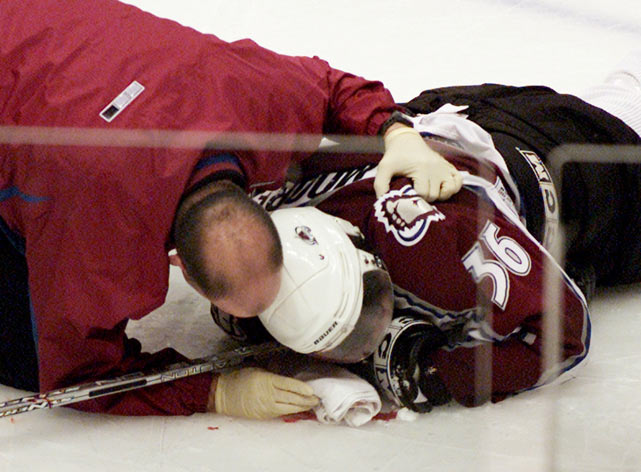
“I forgive you for hurting that person, even though I have nothing to do with this situation,” is something zealots claiming to have super-powers tend to say (there are quite a few to choose from.) I am not a zealot claiming to have super-powers (just a regular zealot), so I will not say this.
But unlike, say, the endlessly guilty Matt Cooke, Todd Bertuzzi really does seem to be a changed man. He seldom engages in physical play during games, goes about his job rather quietly, and has found fantastic chemistry with Detroit’s Pavel Datsyuk. Bertuzzi’s health problems are undoubtedly a factor in his post-attack career but a certifiable madman, something a trial for a hit during a hockey game implies the defendant could be, will not let a sore back stop him from destroying more human beings. A pro-Bertuzzi advocate could point to all of this improved behavior with confidence.
But again, Moore is the one who can’t play hockey anymore. Hockey is a violent sport but smashing someone in the side of the head, from behind, before falling on top of them, is a unique violation, to put it mildly. We cannot say Bertuzzi did not do this.
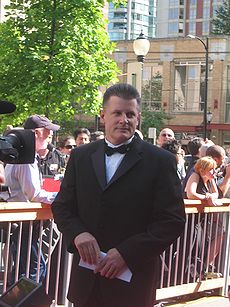
“Why did this happen?” is a good question to ask when evaluating acts of violence.
Bertuzzi attacked Moore because Bertuzzi, along with the rest of the Canucks, thought Moore intentionally targeted Markus Naslund, Vancouver’s captain, for a head-shot during a previous game. At the time of the incident, Naslund was in the midst of a superstar career. He was a gentle, soft-spoken player and was a good friend of Bertuzzi’s in addition to being a sensational line mate.
Now, dishing out retribution for harming a teammate is a platitude few take issue with, but accepted platitudes get trickier when applied to actual incidents. What makes things trickier still is when the retribution crosses a line.
Bertuzzi intended to hurt Steve Moore, but he did not intend to end his career. In that sense, the incident was accidental. This kind of accidental-but-intentional violence happens all the time.
The pilots of the Enola Gay intended to drop the atomic bomb, but didn’t want to kill so many civilians.
Jack Kevorkian intended to kill some of his patients, but not to hurt them.
The idea that someone can intentionally harm a defenseless or unaware person, but not be evil himself, points to an ethical grey area. It’s difficult for those who have been victimized by such people to admit this grey area exists, but it obviously does. Bertuzzi is guilty but not a villain.
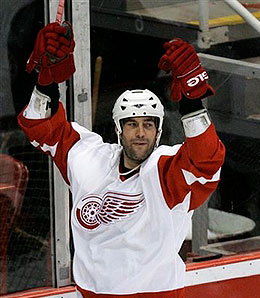
Other factors complicate the issue further.
What if we discovered something odious about Steve Moore’s off-ice life? What if he was an abusive husband, a racist, or, possibly even, a cop? We would immediately feel less sympathy for Moore and more for Bertuzzi if this were the case, but it would not change what happened on the ice. And whether or not Bertuzzi was “following orders” given to him by ex-coach Marc Crawford remains unclear.
The deal-breaker seems to be that the attack came from behind.
“Hitting from behind is cowardly and unforgivable” is a fundamental message during youth hockey indoctrination, and the penalties for it become more severe the older a player gets. Violent acts are plentiful during hockey games and most are punished with two or less minutes spent in the penalty box. At the same time, many of these violent acts could potentially end a player’s career at any moment. Bertuzzi’s disregard of the no-hitting-from-behind rule, along with his disregard for Moore, makes the incident a textbook example of confusing nastiness.
Detroit fans will forever remember fondly the Wings-Avs brawl of the 1996-1997 season, but was the scrap where Claude Lemieux “got what he deserved“ that much different than the Bertuzzi-Moore incident?
The punch that Darren McCarty landed into the face of Claude Lemieux could have easily resulted in a knockout, or a broken neck or a broken something. And the attack did not stop there. McCarty dragged Lemieux around the ice and continued the beating until Lemieux’s face was covered in blood. This happened because Lemieux hit Kris Draper, McCarty’s friend and line mate, from behind and into the boards causing serious damage to the structure of Draper’s face. Like Bertuzzi, McCarty took revenge.
But there are, of course, differences between these incidents: (a) no one was permanently injured during the Wings-Avs brawl and (b) one attack began face-to-face and the other did not.
So the result of an attack and the physics of its origins makes one incident an assault and another a brawl. Skate up to someone and hit them in the face, and you are a hero. Skate behind someone and hit them in the head, and you are a felon.
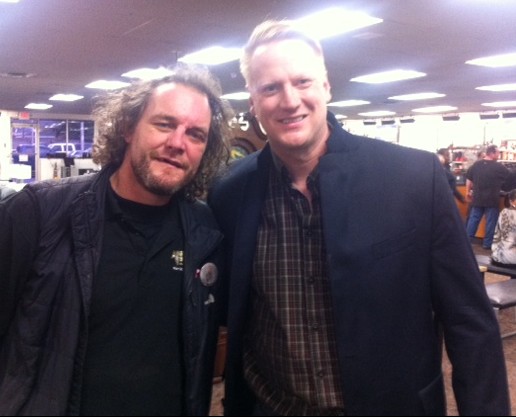
Asking questions is easier than answering them. The Todd Bertuzzi of 2013 is a very different man than the Todd Bertuzzi of 2004. Regardless of the trial’s outcome, Bertuzzi has already been paying, as has the Bertuzzi family, for what the enormous forward did ten years ago. The idea that legal punishment is the only way to “pay” for a crime is a flawed one.
Remorse. Shame. Nightmares. Guilt. Bertuzzi has presumably experienced all of these in ways most people never will. He has to explain the incident to his children. To see looks of confusion on the little faces of people he is responsible for shaping into respectable adults. That can’t be pleasant.
This is little consolation to Steve Moore and his family, but can give spectators like ourselves some perspective on the issue if we care to think about its ethical, and unethical, character.
Ian on Twitter: https://twitter.com/ianflemingdunha